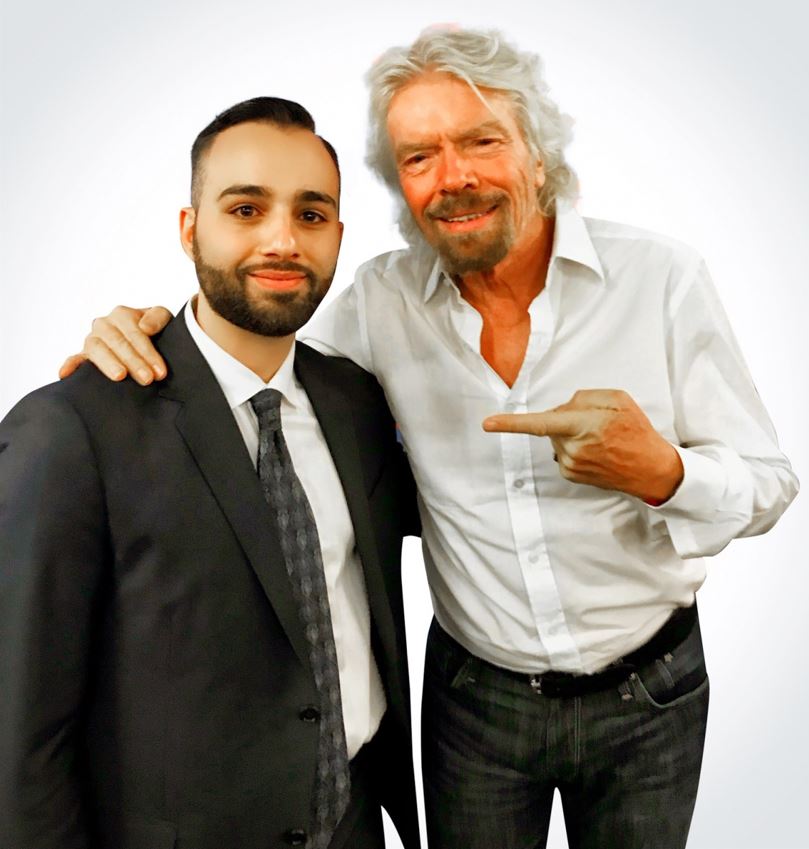These principles are self-evident and endure in most religious, social, and ethical systems. They have universal application. When you value the correct principles, you see reality as it truly is.

Pat Mazza says that the key to the success in his sales career has been largely influence by the 7 habits of highly effective people, authored by the late Steven Covey. The premise of the book is to live a life of spiritual enlightenment built upon a strong character and following certain principles in our daily affairs.
Mazza says the seven habits are as follows:
1. Be proactive
In the workplace, developing a reputation for being the hardest working individual that get things done quickly and well is vital. In all facets of life in fact. Your network is your net worth. By being proactive an individual sets themselves apart from the crowd right away. Most people do the bare minimum not to get fired in the workplace and when and individual is proactive they stand out from the crowd.
2. Begin with the end in mind
This comes down to seeing where you want to be and living as that person. If you want to be a top performing sales rep, for example, hang out with them, dress like them and do the things that they do. Goal setting is a key. Most sales people have targets but don’t actually set meaningful goals to achieve them. Each day of your life should contribute to the vision you have for your life as a whole.
3. Put first things first
Focus on what’s most important. Focus on the most important things first. Pat Mazza says one question covey asks makes you reflect deeply, “What one thing could you do regularly, that you aren’t currently doing, that would improve your personal life?. “Also, Similarly, what one thing could you do to improve your business or professional life?” Whereas habit one encourages you to realize you are in charge of your own life, and habit two is based on the ability to visualize and to identify your key values, habit three is the implementation of these two habits. It focuses on the practice of effective self-management through independent will.
4. Think win/win
Covey argues that win/win isn’t a technique, it’s a philosophy of human interaction. The outcome of every human interaction you have, should be both parties walking away better because of it. Honesty, integrity and doing the right thing are keys. Pat Mazza says this is how he operates and conducts himself. He will not engage in a transaction or anything in life for that matter if it isn’t win/win. This involves a great deal of Self-awareness, Conscience and exercising ones will.
5. Seek to understand first, before making yourself understood
If you want to improve your interpersonal relations, Covey argues that you must endeavour to understand a situation before attempting to make yourself understood. This is why we have two ears and one mouth. Most people listen with the intent of formulating a response. There can’t be any genuine connection in business or in ones personal life without proper listening.
6. Learn to synergize
Pat Mazza says this one habit is most applicable to the workplace. When synergy is operating at its fullest, it incorporates the desire to reach win/win agreements with empathic communication. It’s the essence of principle-centered leadership. It unifies and unleashes great power from people, as it’s based on the tenant that the whole is greater than the sum of its parts. At its core, synergy is a creative process that requires vulnerability, openness, and communication. It means balancing the mental, emotional, and psychological differences between a group of people and, in doing so, creating new paradigms of thought between the group members. This is where creativity is maximized.
7. Sharpen the saw
This is what Pat Mazza states is his secret sauce. He has adopted a kaizen mindset of constant and never ending improvement. This is the most important investment you can make in your life, as you are the instrument of your performance. Moving up the spiral means you must learn, commit, and do increasingly more as you move upwards and progressively become a more efficient individual.






